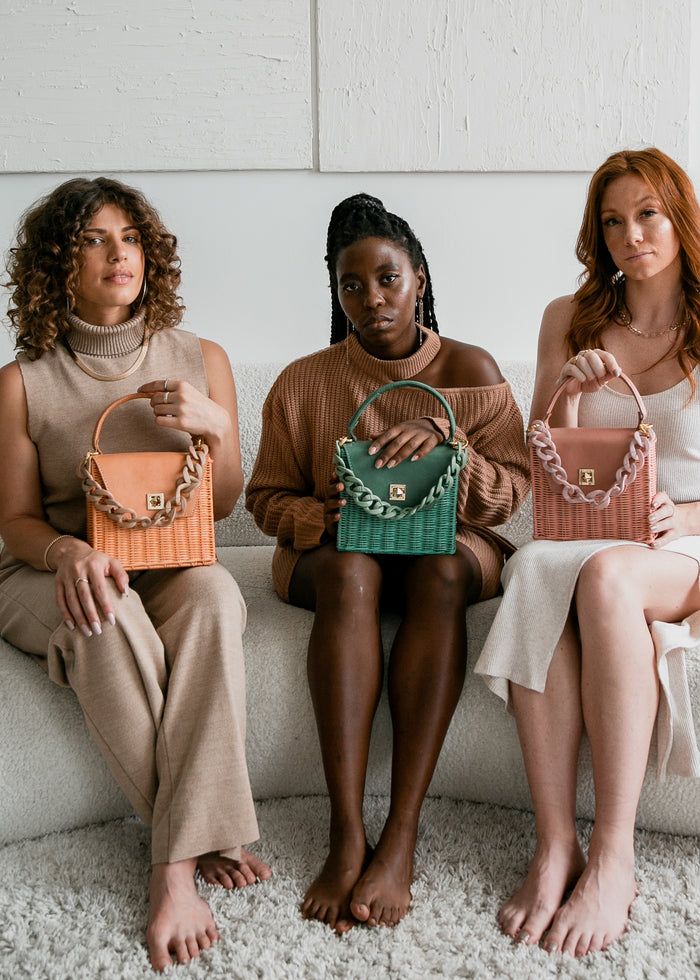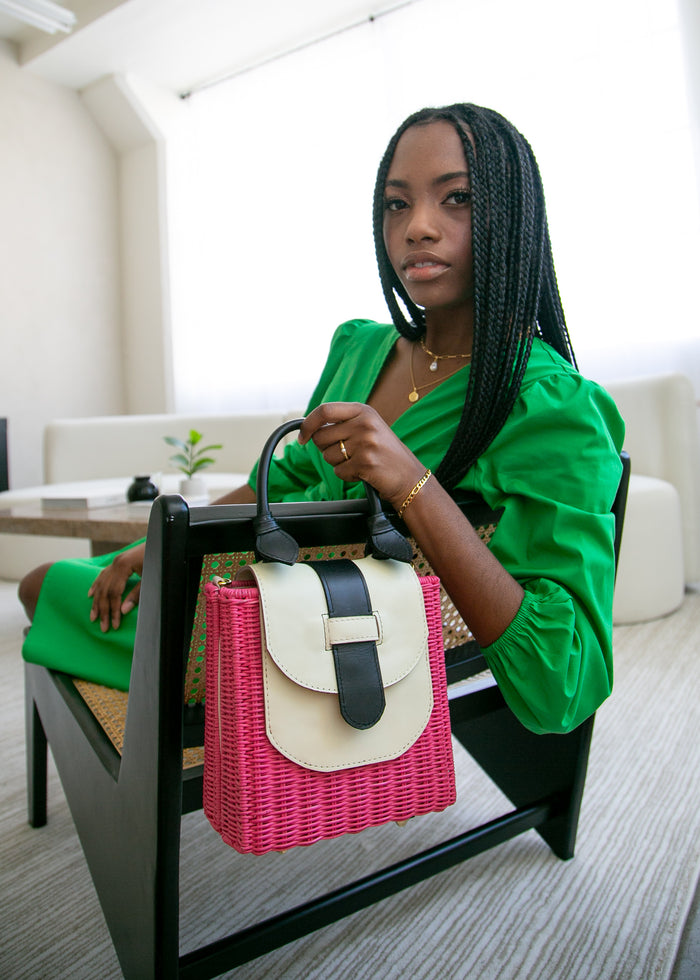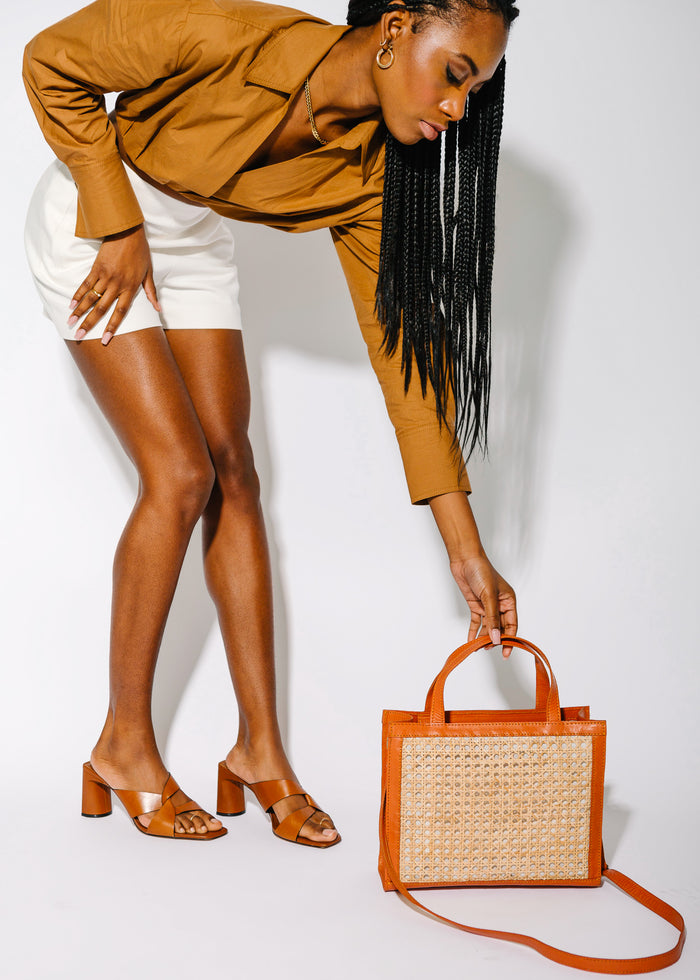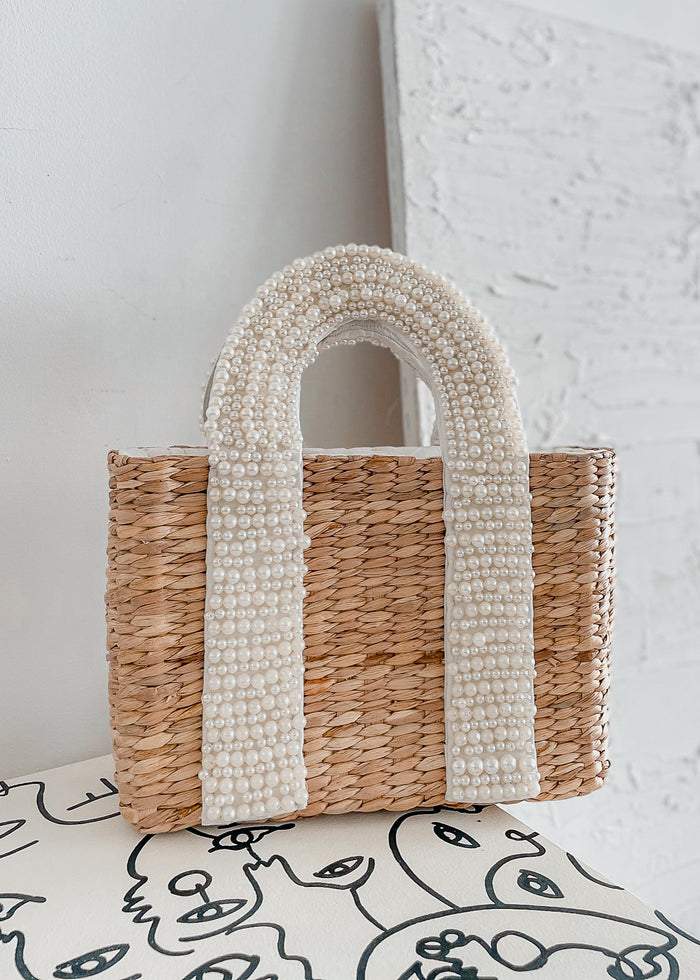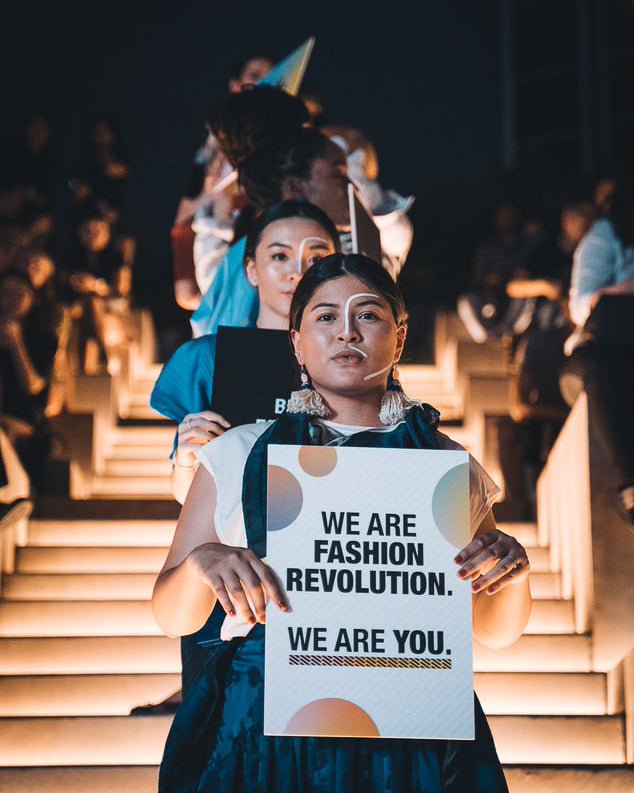


By Emelie Conroy
Sustainable Fashion: Ethical Fashion
It was 2020, you have been at home (a lot), working day in and out, watching Netflix and, perhaps, shopping online. You come across the terms “green”, ethical, eco-friendly or sustainability a lot too! But how many of you still don’t have a full understanding of what it really means. While we know that as consumers and brands, we desire to move towards a sustainable environment in general, the terms can sometimes be confusing or misleading.

'Tessa' Everina Bag, Made from Sustainable Atte Grass
We are going to post blogs for the next few weeks that will be focusing on a beginner’s guide to these “green” terms. We aim to share information with you that can help you make better decisions when you purchase your fashion items. The blogs will be covering:
- Part 1: ethical fashion
- Part 2: eco-friendly
- Part 3: sustainability
To get the most accurate background and definition, let’s go to Ethical Fashion Initiatives (EFI) which is a joint agency of the United Nations and the World Trade Organization.
We first found out about EFI and its’ amazing initiatives when we attended a special event, FASHION MANAGEMENT: Leadership & a Sustainable Approach at Parson’s School of Fashion in early 2019. It was then when we met Simone Cipriani, Founder and Head of Ethical Fashion Initiatives. Through this event, we learn that a sustainable approach is based on people and that sustainability HAS to be sustainable.






FASHION MANAGEMENT: Leadership & a Sustainable Approach at Parson’s School of Fashion
So, What is Ethical Fashion?
Ethical fashion’s core believe is that lifestyle choices impact livelihoods. Ethical fashion creates meaningful work, with fair and decent working conditions, employing traditional skills. For EFI, they exist to create and strengthen social enterprises in emerging economies to connect discerning international brands in fashion, interiors and fine foods with talented local designers, artisans and micro-producers.
So next time you come across a new brand or product, pay attention to how they are benefiting the people who produce or the communities around.
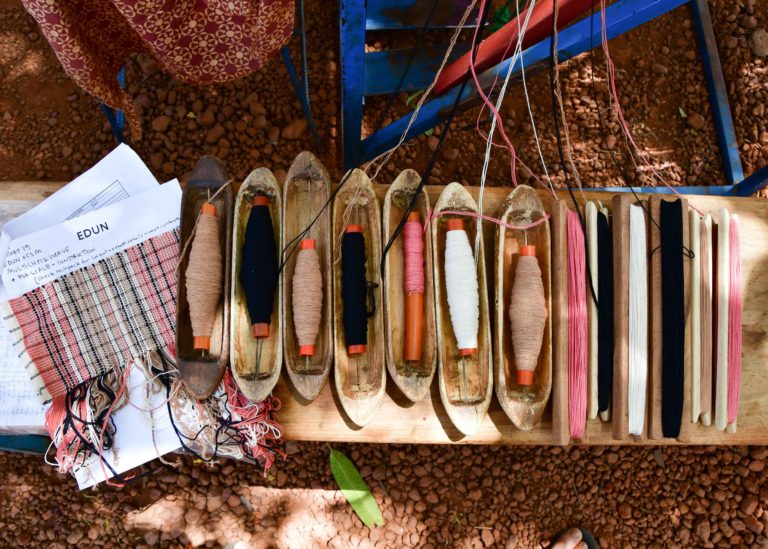
Image: U.N Fashion Alliance
How does ethical fashion contribute to a more sustainable fashion industry?
1. Development of Social Enterprise Hubs
For example, EFI has production hubs in Nairobi, Ouagadougu, Kabul and Port au Prince that co-ordinate the production of goods. They take care of admin and legal issues, exports, staff training, new product development, as well as liaising with international client Image: U.N Fashion Alliance
Image: U.N Fashion Alliance
2. Implementation of Ethical Standards
In ethical fashion business, compliance scheme is developed in collaboration with a multidisciplinary team of local and international experts and enables production partners to implement decent and fair working conditions and systems, that are compliant with national and international regulations.
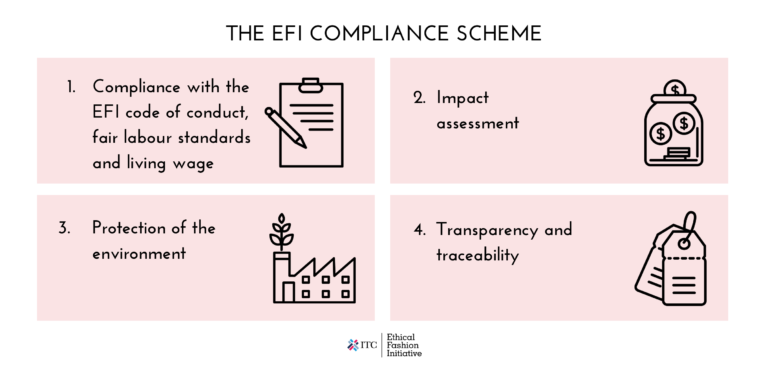
Image: U.N Fashion Alliance
3. The Informal Sector
Dialogue and respect for community values is at the center of the compliance scheme. The formal and informal sectors, often referred to as the ‘handworker economy’ are not faced with the same labor and traceability challenges.
4. The Living Wage
Living wage calculation is essential in the various localities where products are manufacture. Through giving workers a living wage to cover their basic needs, and those of their dependents, organization like EFI aims to lift workers out of poverty.
5. Impact Assessment
To verify the work and social impact, EFI collect extensive data to carefully measure the impact of each order. Before integrating a community into value chain baseline impact assessment is conducted, to have a clear vision of their initial situation.
Order based assessments evaluate each stage of the manufacturing process to track the impact on the communities involved. A Social Impact Report is produced and verified by a third party before sharing with the brand. Brands often use this information in their marketing materials.
Yearly impact assessments are conducted to ensure that the work is positively impacting the lives of the artisans and that our projects are working towards the UN Sustainable Development Goals.
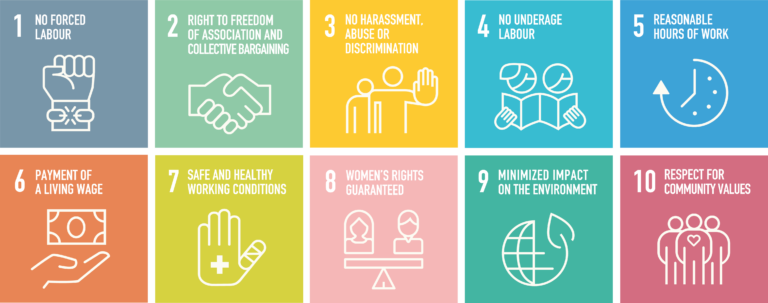
Image: U.N Fashion Alliance
The EFI Code of Conduct
Based on the ILO’s conventions and recommendations and the Fair Labor Association’s code of conduct, our code of conduct is extensive, defining fair and decent working conditions and payment of a living wage. This ensures that workers can lift themselves out of poverty through their work. Social workers are embedded in the communities in which we work, and closely monitor the implementation of these standards.
Everina babes, thank you for taking time to read these. We hope that you are inspired to start shopping, if you haven't already, responsibly. We hope that you start researching and finding the right products for you.
We believe that it's about progress not perfection.
Much love,

